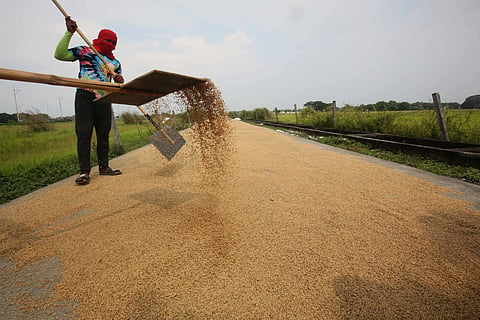
- NEWS
- the EDIT
- COMMENTARY
- BUSINESS
- LIFE
- SHOW
- ACTION
- GLOBAL GOALS
- SNAPS
- DYARYO TIRADA
- MORE

The Department of Agriculture (DA) is pushing Congress to restore and expand the purchasing powers of the National Food Authority (NFA) to strengthen food security and protect farmers’ incomes.
Agriculture Secretary Francisco Tiu Laurel Jr. said the proposal is included in amendments to the Rice Tariffication Law (RTL) under the new RICE Act bill filed by House Speaker Martin Romualdez. The measure seeks to reestablish the NFA’s authority to procure not just palay, but also milled rice and corn directly from local farmers and cooperatives.
“Corn is not just a rice substitute in the Visayas and Mindanao, it is the backbone of the country’s feed production for our poultry and livestock sectors,” Tiu Laurel said.
“These sectors are central to the vision of President Ferdinand Marcos Jr. of a food-secure Philippines.”
Industry data show that yellow corn makes up 46 percent of feed used in livestock and 62 percent in poultry. However, only 2.5 million hectares are planted to corn, supporting more than 1.1 million Filipino farmers. Corn contributed P116.29 billion in gross value added in 2024, second only to rice and ahead of coconut and sugar, while livestock and poultry posted values of P319.48 billion and P142.06 billion, respectively.
Undersecretary for Operations and Agri-Fisheries Mechanization Roger Navarro underscored that NFA intervention is crucial during peak harvest seasons to stabilize prices and prevent middlemen from undercutting farmers.
Tiu Laurel added that enabling the NFA to buy milled rice processed through government-funded Rice Processing Systems would maximize investments in these facilities while giving cooperatives guaranteed markets.
“We must make these multi-million-peso facilities work for the farmers they were meant to serve,” he said.
If passed, the RICE Act could mark a significant shift in government intervention in the grains market —potentially reshaping price stability, farmer income protection, and the country’s overall food security strategy.
